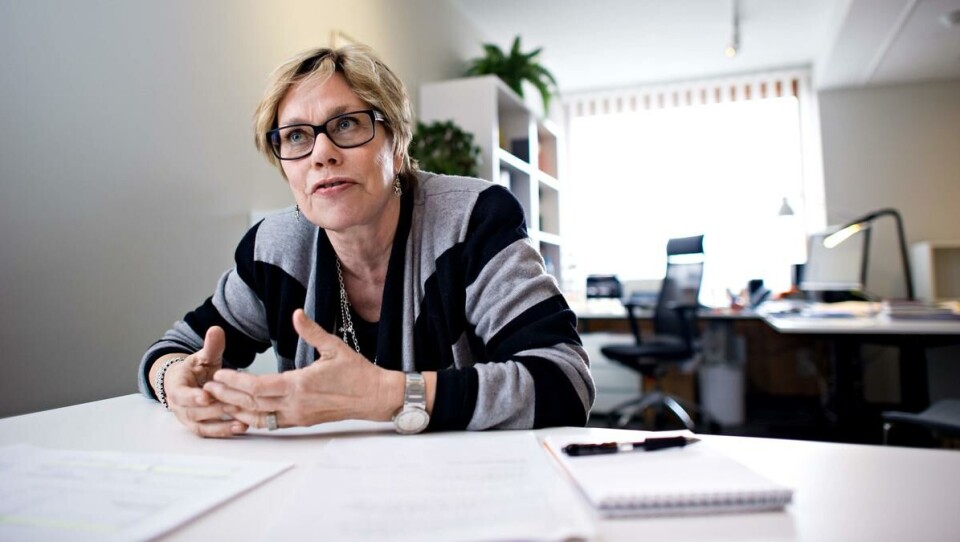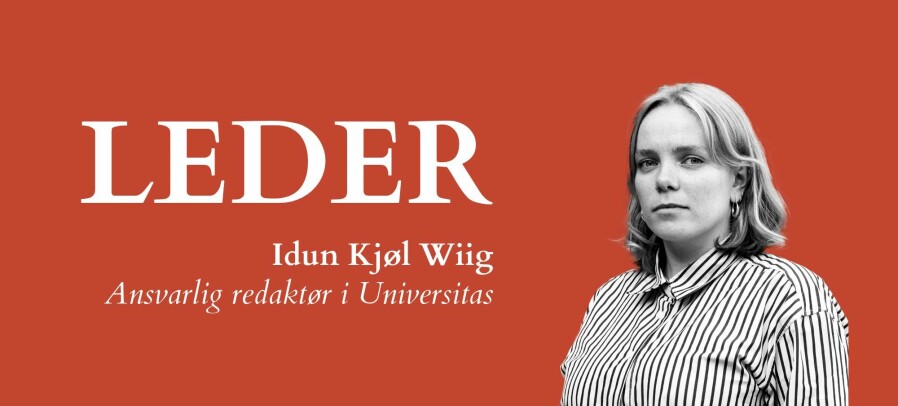
PhD «inbreeding» at the Faculty of Social Sciences
4 out of 5 PhD fellows at the Faculty of Social Sciences at the University in Oslo have been educated at the faculty they are now researching for. Grotesque, says Aftenposten editor Knut Olav Åmås.
– These numbers are worrisome, but not very surprising, says Knut Olav Åmås, culture and debate editor in Norway's largest newspaper, Aftenposten.
In 2010, the University OF Oslo (UiO) admitted 74 PhD fellows at the Faculty of Social Sciences. Sixty of the aspiring researchers who were hired, were already students at the faculty. These figures are taken from a preliminary overview from the Nordic Institute for studies of Innovation, Research and Education (Nifu, Norwegian abbreviation), based on information given by the various faculties.
This places the Faculty of Social Sciences at UiO at the very bottom in Norway with regards to PhD «inbreeding».
PhD candidates can in theory be hired from other countries, or other universities and colleges in Norway. However, most faculties admit a predominance of their own students. In average, almost half of all PhD students at UiO have been students there as well.
80 percent internal-recruitment at the faculty of social sciences is grotesque
– 80 percent internal recruitment at the Faculty of Social Sciences is grotesque, but an average of over 50 percent is also worrying, says Åmås.
He deems that this issue has been present at Norwegian universities and colleges for a long time.
– In some study fields, science has become a regional championship. These numbers confirm that people who have been in the same research environment for several years, have some sort of precedence for fellowships. Internal queues are formed at Norwegian universities, and the research groups become small and introverted, Åmås thinks.
Narrowminded debate
The dean at the Faculty of Social Sciences at UiO, Fanny Duckert, confirms that landing a Phd fellowship can be easier if the candidate already is student of the university.
– Students from UiO are familiar with the research environments, and they know the ongoing projects. This way, they have a higher possibility of making their mark, for instance through signing up as research assistants. In other words, having a background from UiO, may very well be an advantage.
– Previously, UiO has been criticized for «academic inbreeding» due to hiring internal Phd-graduates in research positions. Does this practice start already in the admission of Phd-fellows?
– Yes, that is a question one could ask, says Duckert, but emphasizes that the statistics do not
apply to permanent research positions at the Faculty of Social Sciences.
– But does the internal recruitment not result in the continuation of opinions, rather than the gathering of new ideas externally?
– There is a great variety within the study fields. The fact that many study and do research
at the Faculty of Social Sciences, does not imply that researchers are «cloning» each other.
Reproducing themselves
Åmås disagrees strongly with Duckert's statement.
– I can not understand that Duckert believes they only admit the most talented candidates. Science and research should be an internal activity, not a local affair, says Åmås.
– It is understandable that the university wants to admit their own students, but this is not the way to make the university as good as possible.
Åmås thinks the ties between the Norwegian supervisors and students are too strong.
– Working with the debate section at Aftenposten, I notice how hard it is for young researchers to be open and honest. They do not dare to be critical of their own research environment, and the debate is restrained due to dependancy on small networks. The danger is that well established paradigms within a study field, are reproduced and outdated.
– So students can not have other opinions than their lecturers?
– I was a student for several years, and I observed many authoritarian researchers who wanted their students to continue the studies they had started, or wanted them to go more in-depth. Supervisors often choose students who are interested in the same areas of study as themselves. This way, they are also easier to supervise.
If the universities do not change their practice, Åmås fears the academic quality will drop.
– Norwegian research will suffer permanently, and if this continues, UiO will never establish itself as a «leading research university in Europe», as rector Ole Petter Ottersen has stated as a goal.
Social science in particular
Dean Fanny Duckert, thinks recruiting social science candidates from abroad is harder, due to language barriers and differences in subject matters.
– This reflects that we are in a special position compared to many other countries. Norway is a small country where the social sciences have a high profile.
– The Faculty of Social Sciences admits the highest share of their own students. How come?
– We may have to guess when it comes to this question. We do not know how many applications we receive, proper surveys have not been done on this issue, says Duckert.
She thinks there are several reasons why the social sciences differ from other fields of study in this matter.
– UiO has the best and largest social science environment. We have high criteria for getting hired. Therefore it is natural that the most talented and outstanding students are admitted to our PhD programmes, and that they have studied at UiO.

































